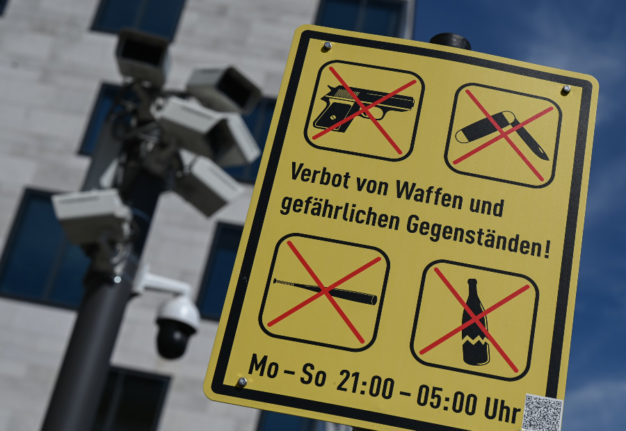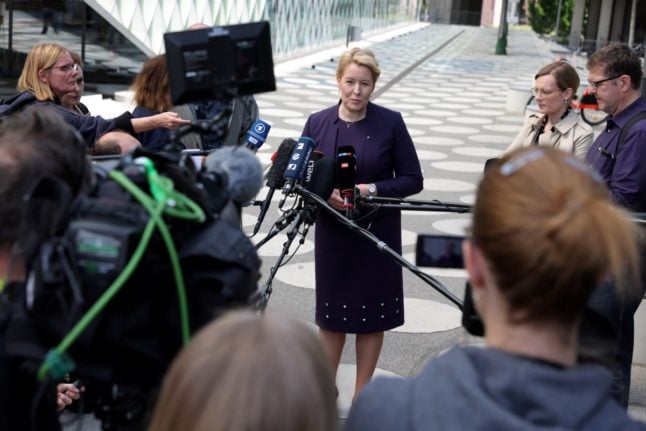Signs with crossed-out knives and firearms already indicate that the no-weapons zone (Waffenverbotszone) will officially be introduced in Frankfurt’s bustling Bahnhofsviertel (train station quarter) as of Wednesday evening.
It will then be forbidden to carry weapons, including knives with fixed or lockable blades longer than four centimetres, between 8 pm and 5 am.
The regulation was a compromise between the city and the police in order to allow working people, such as craftsmen, to continue to carry knives that they need for their work.
The zone will apply from the main railway station in the direction of Kaiserstraße to Weserstraße and between Mainzer Landstraße and Gutleutstraße.
Violations of the ban will slapped with a find €500 and, in event of a repeat offence, the fine will be increased to €10,000.
READ ALSO: Which German train stations have the highest crime rates?
Increase in violence
Police in Frankfurt have long pushed for such a zone, but were met with resistance. The city’s Green party argued that a weapons ban zone would not cut back on crime and could, on the contrary, even worsen people’s sense of security.
Frankfurt’s police chief Stefan Müller had said a year ago that Frankfurt needed such a ban in view of increasing violence – knife offences have tripled in the district since 2019, according to police.
According to the data, 334 assaults and attempted killings with knives alone were recorded last year. Overall, the neighbourhood is considered a crime hotspot with 10,000 offences a year.
In the Bahnhofsviertel, a party mile and an open drug scene meet, said Frankfurt Mayor Mike Josef.
“If the no-weapons zone protects even one life, it is good,” Josef told the FAZ.
“As a directly elected mayor, I have to take into account the concerns of all Frankfurt residents,” Josef stressed, pointing out that he already promised the ban during his election campaign.
In the state capital Wiesbaden, a no-weapons zone was already introduced in 2019. The city and state police consider the measure there to be a success from a security policy perspective.
According to the Ministry of the Interior, a total of 9,407 personal checks were carried out in Wiesbaden between 2019 and 2022. In the process, 217 weapons were seized, 172 of which were knives.
A handful of other German cities, including Hamburg, have also introduced weapons-free zones around their main train stations.
READ ALSO: EXPLAINED: What you need to know about gun laws in Germany




 Please whitelist us to continue reading.
Please whitelist us to continue reading.
Member comments